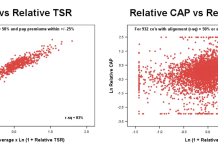Daniel Mansfield Head of Policy Engagement at BSI discusses how standards contribute to the UK economy, and focuses on the stand-out sectors
Independent research by Cebr (Centre for Economics and Business Research), commissioned by BSI, the UK’s National Standards Body and funded by the Department for Business, Innovation & Skills, uses macroeconomic data for the period 1921–2013 to analyse the impact of standards on the UK economy as a whole. It also uses microeconomic data (from a survey of 527 UK firms, plus a number of in-depth interviews) to understand the effects of standards in companies.
Key findings
The research finds that standards contribute towards 37.4% of UK labour productivity growth and towards 28.4% of annual UK GDP growth. They add around £6.1bn every year to UK exports. These findings come from the macroeconomic study.
The microeconomic study focuses on companies surveyed across 7 sectors (automotive, aerospace/ defence, life sciences, food/drink manufacturing, ICT, energy and construction).
At the sector level, reported impacts on annual turnover range from 1.7% (aerospace and defence) to 5.3% (food and drink manufacturing), (this closely mirrors findings from a series of ISO company case studies which found impacts ranging from 0.15% to 5% of annual turnover).
This translates into substantial financial benefits for the 7 sectors surveyed, amounting to annual impacts on turnover totalling £33.3bn (2014 prices) and £6.9bn in GVA terms (2014 prices).
Food and drink manufacturing reported the largest revenue impact (£10.2bn per year) while the ICT sector had the largest impact in GVA terms (£2.1bn per year).
The report concludes that standards are likely to have played a role in sustaining productivity in high-growth sectors during the recession and that if businesses used standards more widely, average productivity in the whole economy could rise.
About the methodology
Standards, of course, do not work in isolation from other factors: companies that use them also use a number of other processes and procedures, quality controls, tests, measurements, etc.; the research seeks to disentangle their effects from those of other complementary factors that drive productivity.
The macroeconomic-level research of the new study follows the methodology previously used by the government in research published in 2005 by the DTI, The Empirical Economics of Standards. The methodology is comparable also to other studies conducted around the world. An innovation in the new report is the incorporation of company-level data: this was not covered in earlier reports.
The DTI study from 2005 reviewed evidence from 1948 to 2003 and found that standards contributed to 13% labour productivity growth, or an 11% contribution to GDP (equivalent to £2.5bn at the time).
Sector focus
While standards have been beneficial to many of the sectors surveyed, it can be seen that the most productive sectors use standards the most:
Aerospace and Defence
Aerospace and defence increased productivity by 20.1% between 2005 and 2014, while UK average was 4.9%. Reported impacts on annual turnover was 1.7%. The aerospace and defence sector is comprised of civilian and military aircraft manufacturing, military equipment manufacturing, naval shipbuilding as well as civilian aviation services.
The sector in the UK employs 126,000 people and had an annual turnover of £32bn in 2013, making it one of the largest in Europe.
The requirement for R&D and innovation in the aerospace and defence sector is high – with the sector ranking in the top 5 for UK R&D spend in 2012.
Food and Drink Manufacturing
Food and drink manufacturing reported the largest revenue impact (£10.2bn per year). UK’s largest manufacturing industry, generating £95.3bn of turnover in 2013 and employing 412,000 staff. The sector covers a significant section of the food chain, from ingredient manufacturers such as meat processors to manufacturers of final products such as soft drinks.
Information and Communications Technologies (ICT)
The ICT sector had the largest impact in GVA terms (£2.1bn per year). The sector is composed of 3 broad sub-sectors; communications (wired and wireless networks), computer hardware and computer services (including software development, IT consultancy and web services).
Innovation levels are high in the sector; ranking second in terms of annual R&D spend (£3.7bn, 21% of UK total) with the majority of this expenditure (51%) in software development and information services.
The UK ICT sector ranks third in the EU after Germany and France1 in terms of annual value added generated and is one of the largest sectors in the UK. In 2013, ICT value added represented 8.2% of the UK nonfinancial business economy in 2013 making it slightly larger than the whole of the manufacturing sector2. Annual turnover in the sector was £159.1bn in 2013, dominated by telecommunications (39% of total) and computer services (55% of total).
1 European Commission Digital Agenda Scoreboard 2014
2 ONS Annual Business Survey 2013
Daniel Mansfield
Head of Policy Engagement
BSI










